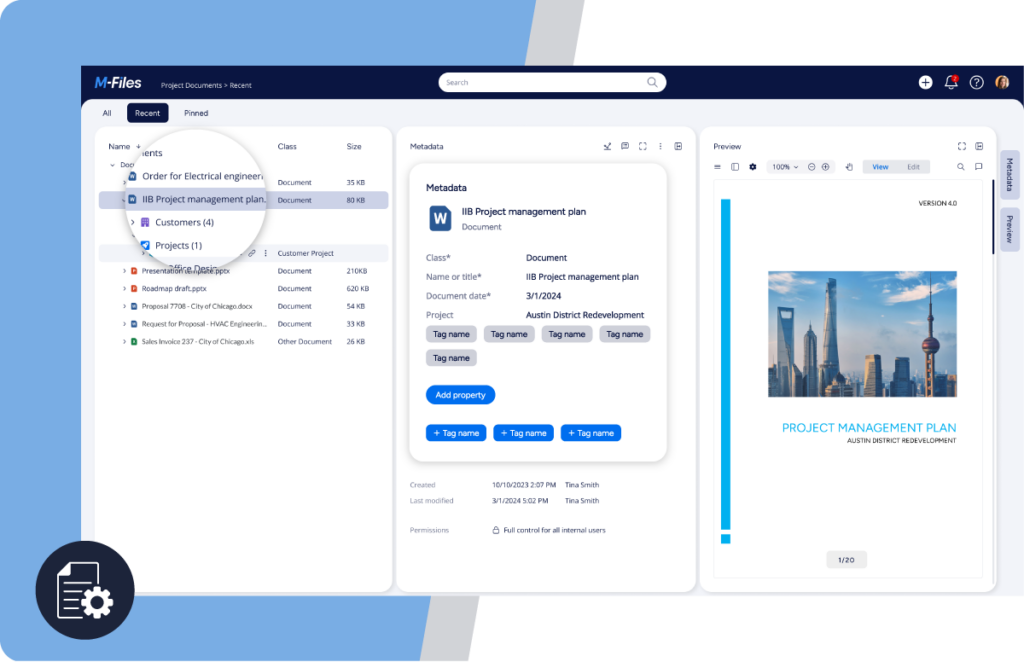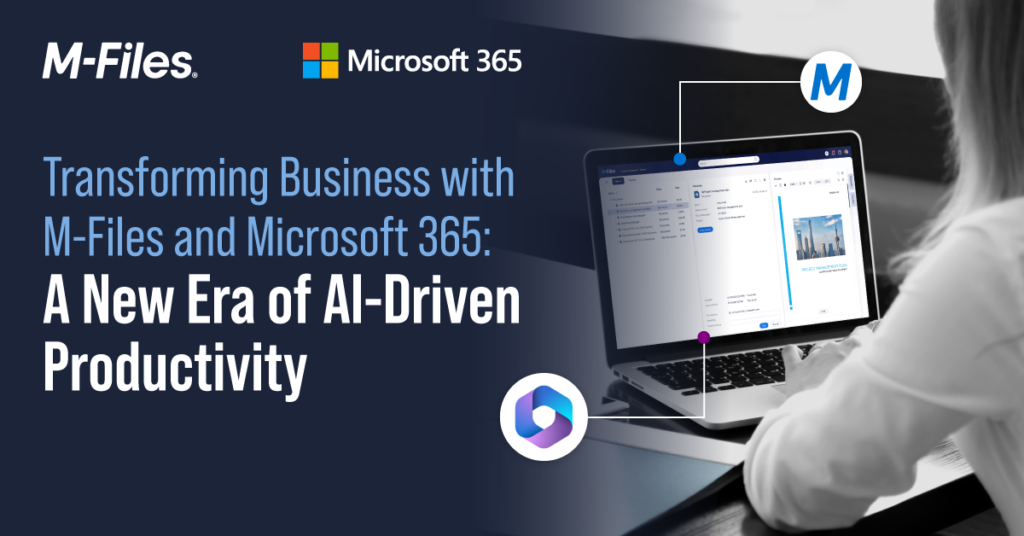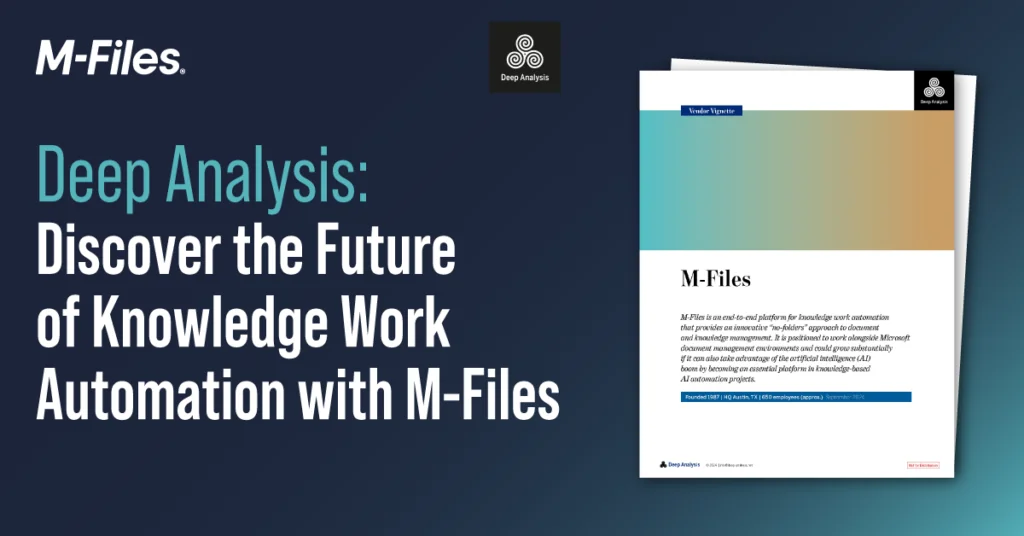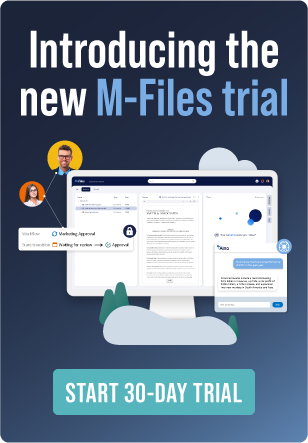Ditch the Folders! Embrace Smarter File Management with Metadata

Traditional digital filing systems manage information by imitating the “old school” file folders and cabinets approach still used in many paper-centric offices today. This approach requires employees to remember or guess where items are stored. Trying to find the right information becomes a time-consuming and productivity-sapping activity for most employees and businesses.
Industry analysts have researched the inefficiencies of folder-based storage. Gartner claims that professionals spend an average of 18 minutes to locate a document. IDC added up the time wasted on these searches, estimating the cost to be $19,732 per information worker per year.
Folderless storage approaches originally emerged in response to the demand for more efficient alternatives for managing information assets. Today, document management solutions based on a metadata-driven approach deliver a myriad of benefits compared to cumbersome folder-based systems and schemes. With metadata, any document or information object can be intuitively classified and managed based on “what” it is versus “where” it’s stored.
The Power of Metadata
What is Metadata?
Metadata, often defined as data that describes data, has been around for thousands of years. In ancient Greece, librarians attached tags to the end of scrolls, making it possible to find the right scroll without unrolling and reading scroll after scroll. Today, metadata makes it possible to organize and view digital content based on what it is instead of where it has been stored.
How Does Metadata Work?
At the heart of a modern document management solution, a tag (or multiple tags), also known as an attribute, is attached to a document or information object at the time of creation. Listings can then employ this metadata to quickly and dynamically retrieve all relevant information. Documents, or any information asset, can be “found” in many different views or searches with no duplication of data. A view is simply a dynamic product of metadata rather than a static location or container that itself classifies the data. The result is faster access to the precise content users are looking for.
Benefits of Metadata-Driven Document Management

Faster Information Retrieval
This forward-thinking approach for more effectively organizing and finding information is being embraced by many industry analysts and pundits. According to Gartner, “metadata unlocks the value of data.” In the company’s Hype Cycle for Content Management, 2014, the analyst firm states that, “Repository architectures will move to a metadata-centric, virtual view-based approach… Each user will have preference metadata associated with the content, allowing contextualized views.” They also explain that content management solutions based on metadata “will enable more flexibility and contextually relevant information. Search, metadata and rule engines will pull content from many locations and applications.”
Enhanced Collaboration & Flexibility
Effective metadata management dramatically changes how businesses can use information. By harnessing the power of metadata, organizations can drive up efficiency. Metadata and the resulting dynamic, intuitive views avoid the time-consuming searches through folders and also improve:
- Collaboration – Company-wide views can be introduced and shared across functions and departments.
- Flexibility – Views can be customized for individual or team needs.
Improved Security & Compliance
Besides saving time and boosting efficiency, metadata-centric document management solutions improve security. Metadata enables access rules to be based on the class of document, job role, location, or by nearly any other attribute defined by the company, in contrast to folder-based environments where each file’s access permissions are inherited from the folder it resides in.
Simplified eDiscovery & Retention
eDiscovery and Retention Policies – Content can be put on hold and retention policies can be set based on document properties, instead of having to lock down large folder hierarchies. This results in better compliance and more optimized data repositories.
The Future of File Management: Embrace Metadata
The benefits of metadata extend throughout the life of each information asset. Metadata-based rules can be introduced to streamline replication between primary and disaster recovery sites as well as automatically managing long-term archiving of non-current assets.
Metadata represents an exciting opportunity to save time and introduce a more intelligent approach for file management. As the cornerstone of a dramatically more effective foundation for a modern digital filing system, metadata is helping organizations end content chaos and introduce practices that drive up productivity, security, and business agility.
Ready to ditch the folders and take control of your documents? Schedule a free demo or start your free trial today!




